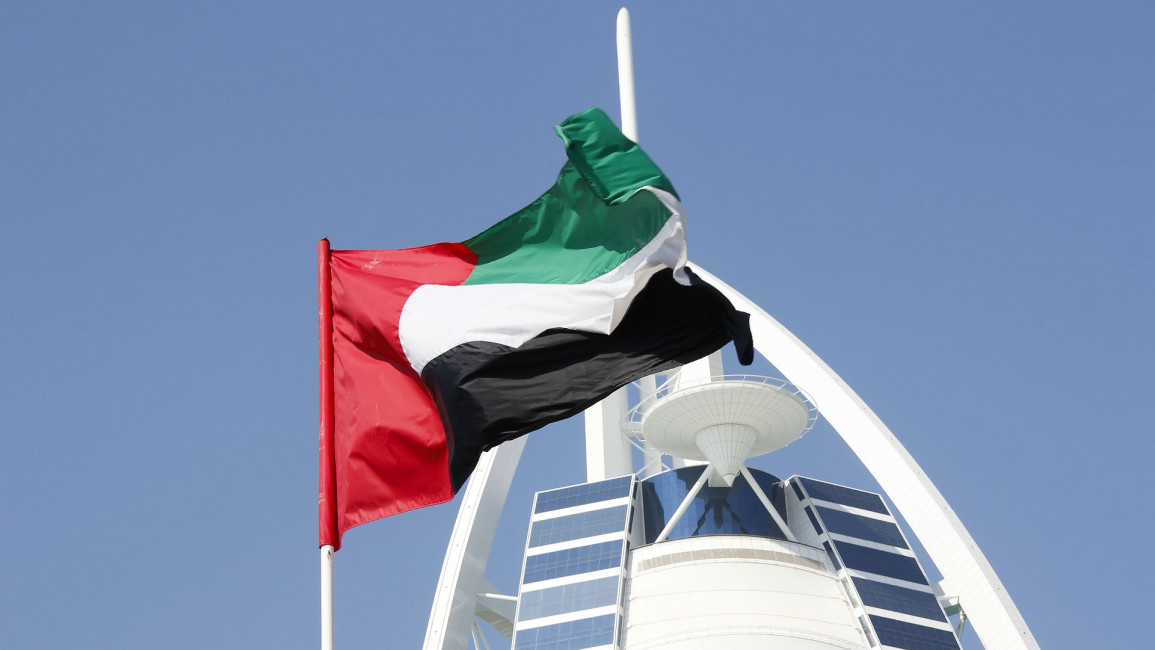Lebanese families given 48 hours to leave the UAE
Hundreds of Lebanese were deported from the UAE on Saturday.
Although no official reason was given by the Gulf state for the deportation of the Lebanese families to Beiruit, the majority of those affected were Shia.
The Lebanese residents were simply told they were "unwanted" and ordered to leave the country within 48 hours.
Tragedy
Deportees described the situation as a "tragedy", leaving many without homes or jobs.
Mohammed, who asked for his real name not to be used, had lived in the UAE for 19 years with his family before being deported.
"Today I am returning to my father's home empty-handed. I don't own a house where I can live," he said.
His children and wife will stay in the UAE until the end of the school year, because his spouse has her own independent work permit and so not affected by the government's decree.
"I told [my children] I was traveling to Lebanon but I spared them the details as I was worried about the impact the deportation would have on their relationships with their friends and colleagues."
Mohammed said that his case was "exceptional", and that in the vast majority of cases whole families were deported rather than just an individual.
"Today I have no home, no family, and no job. I'm worried about experiencing the same level of neglect in Lebanon as those who were deported before us over the past few years."
Previous deportations
Ahmed, who also didn't want his real name to be used, told al-Araby al-Jadeed that he is left in a difficult position with financial responsibilities that he will find difficult to meet now that he is without an income.
Ahmed had seen previous forced evictions of Lebanese citizens from the UAE and at the time wondered when his time would come.
Now it has happened, he fears he won't be able to meet the monthly installments on his home in Lebanon.
Hassan Alyan heads a committee for the Lebanese deported from the UAE and spoke about the callous actions of the UAE government.
"The deportation affects approximately 500 Lebanese families," Alyan said, although Lebanese and UAE media put the figure of the recent wave as 120 individuals.
"We fear that this number will double in light of the politicisation of the issue in Lebanon, and that the UAE will continue its harsh policies against Lebanese residents."
| The deportation affects approximately 500 Lebanese families. |
Authorities in the UAE have ordered the deportation of many more Lebanese families since 2009. Years later and they are still suffering the consequences of the UAE's actions.
"A number of those families are facing lawsuits through Interpol that were filed against them by Emirati insurance companies. Furthermore, children who are still studying are struggling to adapt academically and socially," Alyan says.
"The children faced difficulties adjusting and acclimatising in the first few years of living in the UAE, but we succeeded in setting up a vast network of social and economic relations that the Emirati authorities destroyed with this unfair decision."
Not all of his compatriots are sympathetic to the plight of the deported families. Some have accused the Lebanese residents of being a "burden" on the UAE.
There are an estimated 80,000 Lebanese living in the UAE, and their remitances contribute an important part of Lebanon's economy.
"We were part of the country's economy and we received allowances in reward for our work and hardship," he responds.
"That was until our presence there became politicised and the Lebanese state failed to deal with our issues."
Sectarian motives
Alyan called on the Lebanese government to pay attention to the actions of the UAE and mobilise the ministries of education, health and social affairs to assist the deportees. So far, he says, these government bodies have proven ineffective in helping the deportees.
The Lebanese government should also address the fact those the UAE deported were of a particular sect, he says.
During the first wave of deportations, Lebanon's Prime Minister Fouad Siniora dismissed the event as "a matter of the UAE's sovereignty".
Six years and several more waves of deportation later, the media bureau of Lebanon's current PM, Tammam Salam, announced that he was addressing the issue.
This was done by speaking to Dubai's ruler, Mohammed bin Rashid Al Maktoum, who also acts as the UAE's vice president and prime minister, on the sidelines of an Egyptian investment summit at Sharm el-Sheikh.
Yet his words seem to have little effect. A few days later and the UAE enforced another set of forced deportations.
This article is an edited translation from our Arabic edition.



